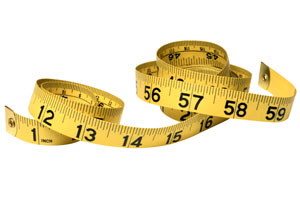
Mystery of 1 Failed Weight Loss Diet
The Case of Jane's Weight Challenges
Bringing you the story of Jane to unravel why some weight loss diet strategies just wouldn't work...
Jane is struggling big time with her weight loss diet. Since young, she has a voracious appetite for sweet delights like ice-cream, candies, and desserts. Now that she understands the health risks related to obesity, she has started to conscientiously cut down her fat intake by avoiding foods such as milk, cheese, etc, eat a much lesser amount of rice for each meal, and take a lot more fruits and vegetables than ever. However, inconceivably, she continues to put on more and more weight. So, what's the mystery here?
Misconception of Carbohydrates
Firstly, like many people, Jane probably doesn't know what a carbohydrate is. She seems to think carbohydrates are starchy foods like rice, pasta, noodles, breads, whereas vegetables, fruits, and even sweets are simply food types that she can eat in unlimited amounts to satisfy her sweet tooth without gaining weight.

The truth is sweets, vegetables and fruits, like rice and bread are all carbohydrates, which are merely different forms of simple sugars linked together in polymers. Any carbohydrates not immediately used by the body will be converted into fat and stored in fatty tissue.

In this case, if Jane takes aplenty fruits and vegetables but continues to eat a lot of high-glycemic sugared stuff, she is consuming an excessive amount of sugar and refined carbohydrates. And worse, if she is leading a sedentary lifestyle and not exercising regularly, she would have even a harder time shedding kilos.
Misunderstanding Fat
Secondly, eating fat does not make us fat. Our body cannot metabolize fat into fat. When we consume fat, our body has to break it down into its little building blocks and then absorb the pieces, and what is not used it eliminates. The fat you have in our body is not the same as the fat you eat. The problem with fat is that it's calorie-dense and it clogs your arteries and coupled with starch causes bad cholesterol. Many dieticians believe it's hard to be successful in any weight loss diet by simply restricting calories. Eating less does not guarantee losing excess body fat. And low-calorie, high-carbohydrate diets generate a series of biochemical signals in your body that will take you out of the balance, making it more difficult to access and utilise stored body fat for energy.
Effects of High Insulin Levels
The insulin stimulated by excess carbohydrates in Jane's body can aggressively promote the accumulation of body fat. And the higher the body's insulin levels, the more effectively it prevents fat cells from releasing their stores, and the harder it becomes for Jane to see any pay-off in her weight loss diet. Over the long haul, high insulin levels can lead to insulin resistance and cause Jane serious health problems like accelerated aging, heart disease, and diabetes. Diets high in refined sugars which Jane has cravings for release more insulin thereby allowing less stored fat to be burned.

High insulin levels also suppress two important hormones: glucagon and growth hormone. Glucagon promotes the burning of fat and sugar, whereas growth hormone is used for muscle development and building new muscle mass. Insulin also causes hunger. As blood sugar increases following a carbohydrate meal, insulin rises with the eventual result of lower blood sugar. This results in hunger, often only a couple of hours after the meal. Yearning for sweets can become a vivacious part of the cycle, causing Jane to resort to bingeing on even more carbohydrates.
The learning gleaned from Jean's paradoxical eat-less-and-get-fatter situation is actually very straightforward: Our body's response to excess carbohydrates in our diet makes us fat. We have a limited capacity to store carbohydrates. Excess carbohydrates, which are fat-free, end up as excess fat in the body.
End of "Mystery of 1 Failed Weight Loss Diet". Back to "Health Food Matters".